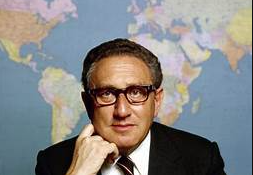America’s most powerful secretary of state has died at 100. Let’s not airbrush his history.
In July 1971, Henry Kissinger, then the U.S. national security adviser, made a controversial secret trip to China, laying the groundwork for President Richard Nixon’s groundbreaking visit. Officially, Kissinger was ill during a state banquet in Pakistan, and his motorcade drove off to a private villa. However, the real Kissinger was flying to Beijing aboard Pakistan’s president’s plane. The mission was part of Nixon’s larger strategy to open diplomatic relations with China, an unprecedented move at the time.
For two days, Kissinger met with Chinese officials, setting the stage for the first visit by a U.S. president to China. Upon returning to Pakistan, Kissinger signaled the success of the mission by sending Nixon a coded message: “Eureka.” This marked the beginning of the thawing of U.S.-China relations. In February 1972, Nixon, accompanied by Kissinger, made the historic trip to China, where they met Chairman Mao Zedong, laying the foundations for modern Sino-American relations. This visit became a defining moment in global geopolitics, altering the course of the Cold War and reshaping the balance of power.
While Kissinger’s achievements in China are widely praised, his legacy remains highly controversial. His role in the U.S.’s bombing campaigns in Cambodia and Vietnam during the 1960s and 1970s, as well as his support for authoritarian regimes in Latin America, casts a shadow over his career. The bombing of Cambodia, in particular, has been condemned by many as an unjustified escalation that led to widespread devastation and loss of life. Despite these actions, Kissinger remained a prominent figure in American politics and global diplomacy for decades.
Kissinger’s approach to diplomacy was rooted in realpolitik, emphasizing pragmatic, often morally ambiguous solutions to international conflicts. He believed that the balance of power, rather than ideological alignment, should govern foreign relations. This led him to work with leaders who were deemed enemies of democracy, such as the military junta in Chile and the government of Pakistan during the Bangladesh Liberation War. Critics argue that Kissinger’s willingness to support such regimes undermined the values of democracy and human rights that the U.S. claimed to champion.
Despite these criticisms, Kissinger’s influence in shaping U.S. foreign policy was undeniable. He served as national security adviser and secretary of state under Nixon and Gerald Ford, playing a pivotal role in U.S. diplomacy during the Cold War. His legacy includes the policy of détente with the Soviet Union, the opening to China, and the peace negotiations that led to the end of the Vietnam War. His achievements are often framed within the context of maintaining U.S. dominance in a world defined by nuclear threat and superpower rivalry.
Kissinger’s impact on American diplomacy was further cemented after his tenure in public office. Following his resignation in 1977, he became a highly sought-after consultant and adviser, shaping the foreign policies of both private corporations and governments. He also became a symbol of the U.S. establishment, frequently appearing at high-profile events and maintaining a significant presence in international relations. Yet, his role in shaping modern geopolitics continues to be the subject of debate, with his supporters praising his pragmatic approach, while his detractors accuse him of prioritizing American power at the expense of human rights.
Henry Kissinger passed away at the age of 100, leaving behind a legacy that is both celebrated and criticized. His contributions to U.S. foreign policy are undeniable, but the moral complexities of his actions continue to shape how he is remembered. While his diplomatic achievements reshaped the global order, the controversies surrounding his decisions serve as a reminder of the often uneasy intersection between power, politics, and ethics in international relations. His legacy, much like the history of U.S. foreign policy itself, is layered, complex, and far from settled.

